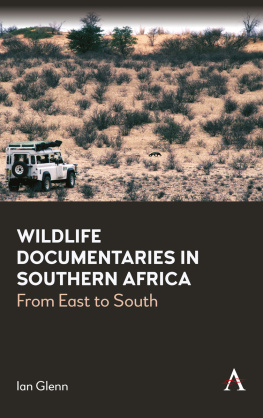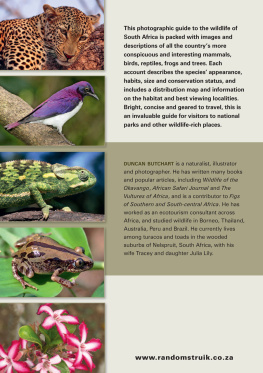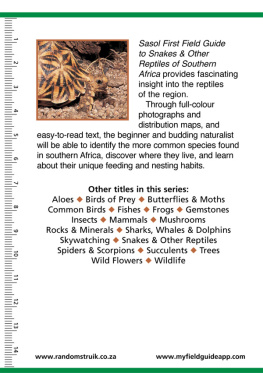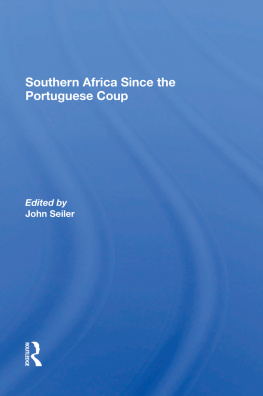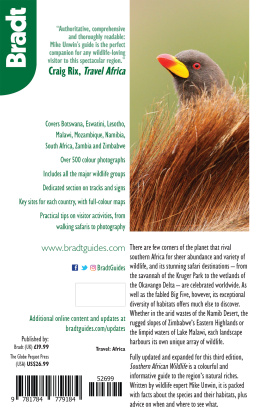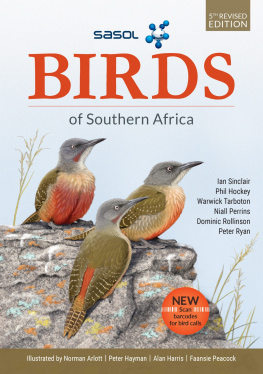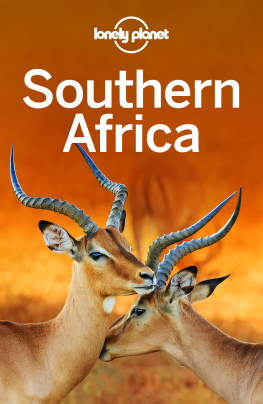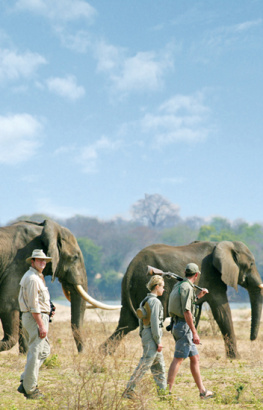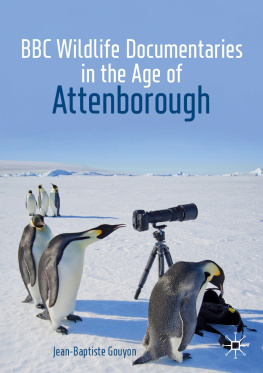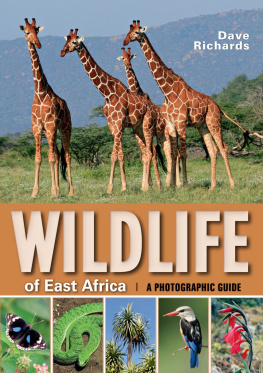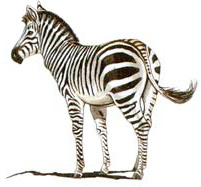Glenn Ian - Wildlife Documentaries in Southern Africa
Here you can read online Glenn Ian - Wildlife Documentaries in Southern Africa full text of the book (entire story) in english for free. Download pdf and epub, get meaning, cover and reviews about this ebook. year: 2022, publisher: Anthem Press, genre: Politics. Description of the work, (preface) as well as reviews are available. Best literature library LitArk.com created for fans of good reading and offers a wide selection of genres:
Romance novel
Science fiction
Adventure
Detective
Science
History
Home and family
Prose
Art
Politics
Computer
Non-fiction
Religion
Business
Children
Humor
Choose a favorite category and find really read worthwhile books. Enjoy immersion in the world of imagination, feel the emotions of the characters or learn something new for yourself, make an fascinating discovery.
Wildlife Documentaries in Southern Africa: summary, description and annotation
We offer to read an annotation, description, summary or preface (depends on what the author of the book "Wildlife Documentaries in Southern Africa" wrote himself). If you haven't found the necessary information about the book — write in the comments, we will try to find it.
Glenn Ian: author's other books
Who wrote Wildlife Documentaries in Southern Africa? Find out the surname, the name of the author of the book and a list of all author's works by series.
Wildlife Documentaries in Southern Africa — read online for free the complete book (whole text) full work
Below is the text of the book, divided by pages. System saving the place of the last page read, allows you to conveniently read the book "Wildlife Documentaries in Southern Africa" online for free, without having to search again every time where you left off. Put a bookmark, and you can go to the page where you finished reading at any time.
Font size:
Interval:
Bookmark:


Anthem Press
An imprint of Wimbledon Publishing Company
www.anthempress.com
This edition first published in UK and USA 2023
by ANTHEM PRESS
7576 Blackfriars Road, London SE1 8HA, UK
or PO Box 9779, London SW19 7ZG, UK
and
244 Madison Ave #116, New York, NY 10016, USA
Copyright Ian Glenn 2023
The author asserts the moral right to be identified as the author of this work.
All rights reserved. Without limiting the rights under copyright reserved above, no part of this publication may be reproduced, stored or introduced into a retrieval system, or transmitted, in any form or by any means (electronic, mechanical, photocopying, recording or otherwise), without the prior written permission of both the copyright owner and the above publisher of this book.
British Library Cataloguing-in-Publication Data
A catalogue record for this book is available from the British Library.
Library of Congress Cataloging-in-Publication Data
A catalog record for this book has been requested.
ISBN-13: 978-1-83998-1-500 (Hbk)
ISBN-10: 1-83998-1-504 (Hbk)
Cover: David and Carol Hughes filming the honey badger in the Kalahari.
Photograph courtesy Keith Begg
This title is also available as an e-book.
For Anne, Elsa, Tom, Paige, James and Chris
In taking so long to write this book, I have built up a long (and distinguished!) list of people who have given me information, advice, insights, memories, photographs and access to films. I am in the first place enormously indebted to the filmmakers: Jen Bartlett, Keith Begg, Craig and Damon Foster, Richard Goss, Mike Holding, Carol Hughes, Dereck Joubert, Peter Lamberti, Dee McLachlan, Elmon Mhlongo, Paul Penzhorn, Lynne Richardson, Sue Scott, Karin Slater, Jonathan Stedall, Mark Tennant, John Varty, Johan Vermeulen, Graham Wallington and Kim Wolhuter. Carol Hughes, Richard and Karen Goss, John Varty and Graham Wallington have been hospitably generous to me and my family.
To that must be added the list of those producers and others closely involved with making the films: Gail Gemmell, Lex Hes, Les Kottler, Louis Liebenberg, Franois Marais, Grant McLachlan, Gus Mills, Mike Robinson, the late Mike Rosenberg, Mary Seely, Ian Thomas, Greg Upton, Danie van der Walt, Ronet van der Walt, Dave Varty and Ellen Windemuth. My apologies to any people who helped me whose names I have ungratefully omitted.
The major intellectual starting point for this project occurred in a seminar on wildlife documentary that William Beinart gave to the History Department at the University of Cape Town. His paper then and his seminal work on wildlife documentaries in East Africa encouraged me to work on Southern African developments and led to a collaboration with him on a seminar paper on the move of wildlife documentary from East to Southern Africa, a paper that was in many ways the genesis of this book and provided its subtitle. Though a proposed collaboration between William, David Bunn and me never materialized, I remain enormously in Williams debt for many illuminating conversations, shared contacts and materials, the hospitality he and Troth offered me in Oxford, and for his generous comments on the finished product. I also remain in David Bunns debt for his work and for facilitating access to research facilities in the Kruger Park and the Wits Rural Facility.
Many other academics, archivists and industry insiders helped me locate films or gave me invaluable information, leads and answers to questions: Peter Bassett, Robin Bray, Peter Bridgeford, Jane Carruthers, J. M. Coetzee, Roelof de Bruine, Jacob Dlamini, Sam Ferreira, Susan Flood, Hermann Giliomee, the late Jean Hartley, Mike Kendrick, Kobie Kruger, Anton Lategan, Lamson Maluleke, Linda Martin, Mireschen Marx, Samantha Matthews, Alison Morphet, Trevor Moses, Harriet Nimmo, Chris Palmer, Neil Parsons, Danie Pienaar, Juan Pinto, Petra Regent, Ian Rijsdijk, Joep Stevens, Louis van Schalkwyk, Di Tipping-Woods, Paulie Viljoen, Ian Whyte, Stefan Winterboer and Nicki Young. Once again, apologies to any whose names I have inadvertently omitted.
I am grateful to the staff of the Bibliothque Nationale and the SANParks archives in Groenkloof and Skukuza for help in locating and consulting material. I am also very grateful to various funding bodies who have helped fund travel and the acquisition of materials: the National Research Foundation of South Africa, the University of Cape Town and, particularly, the University of the Free State.
Earlier versions of some chapters have appeared in the following journals:
Silent Hunter and Its Influence on Wildlife Documentary. Communitas (2018): 22028.
Conservation Propaganda in South Africa? The Case of Laurens Van der Post, the Department of Information and the National Parks Board. Southern Journal of Contemporary History 45, no. 2 (2020): 83103.
Telesafaris, WildEarth Television, and the Future of Tourism. International Journal of Communication 15 (2021) 256985.
Norma Foster and Wildlife in Crisis. Communitas (forthcoming).
I am grateful to academic reviewers of these articles for many constructive suggestions and also for the help of Harry Wels and an anonymous referee in examining this manuscript.
Peter Finlayson and Clive Thompson have encouraged my sense that wilderness and wildlife matter, as have my family who have been dragged along, usually willingly, on numerous exploratory sorties. My wife Les has provided not only the fringe benefit of access to many otherwise unavailable tourist experiences but the central benefits of intellectual stimulation and patient and cheering support.
My wife Les Aupiais is, among other things, a magazine editor. In 2008, she asked me to interview and help her write about wildlife filmmaker Kim Wolhuter (). When I spoke to Wolhuter and asked him about what had inspired him, he asked if I knew Carol Hughes as she and her late husband David had been the leading wildlife filmmakers of their time. When I confessed not, he put me in touch with her.
Carol invited me to visit her in her house on the banks of the Crocodile River, just outside the Kruger Park. When I walked into her study, I saw six Emmy statues and a Golden Panda, the British prize for the best wildlife film of the year (). David and she had won the very first Golden Panda, in 1982, for their film Etosha: Place of Dry Water (1979). I had no idea that any South African filmmaker had won that many awards and suspect that very few South Africans do. When South African filmmakers win awards, local media usually make a fuss, yet here there were signs that the leading wildlife filmmakers of their time were hardly recognized in their own country At that moment, I felt, indignantly, that a study of wildlife documentary in South Africa was long overdue. Much later, it is even more so.
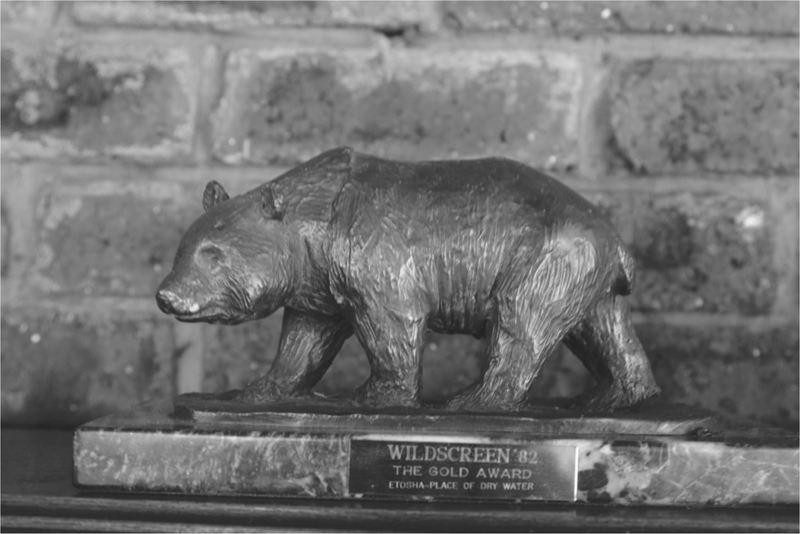
Font size:
Interval:
Bookmark:
Similar books «Wildlife Documentaries in Southern Africa»
Look at similar books to Wildlife Documentaries in Southern Africa. We have selected literature similar in name and meaning in the hope of providing readers with more options to find new, interesting, not yet read works.
Discussion, reviews of the book Wildlife Documentaries in Southern Africa and just readers' own opinions. Leave your comments, write what you think about the work, its meaning or the main characters. Specify what exactly you liked and what you didn't like, and why you think so.

